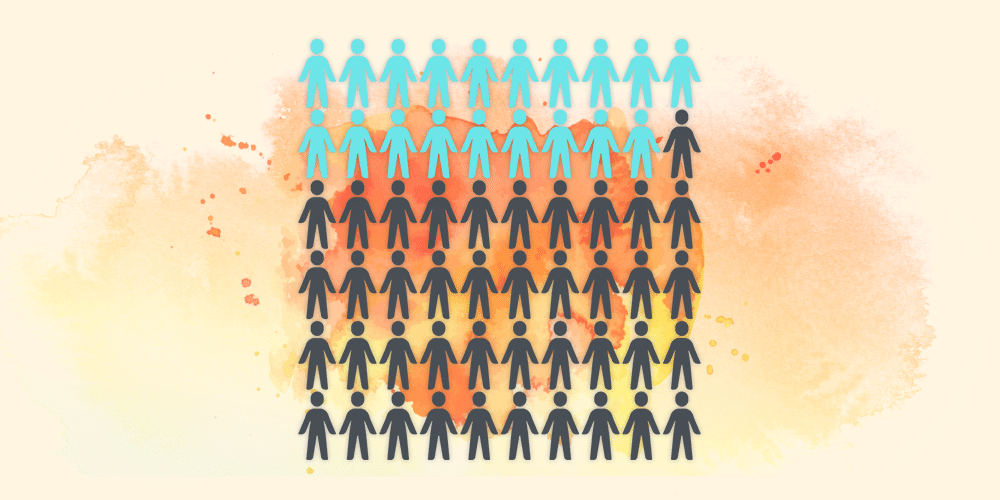Last week, WordCamp Europe organizers shouted down Michelle Frechette, who hoped against hope that they’d be fielding a diverse group of speakers at this year’s event in Athens.
Her concern: Only 25% of the first 20 speakers announced were women.
The response: Just wait. Don’t be “prejudiced” by assuming the first 20 were representative of the rest.
One organizer added, “I would never allow having a WordCamp that is mostly male.” (Note: To my knowledge, every WordCamp ever held has been mostly male.)
Another organizer called it “circumstantial.”
Well, we’ve waited, and now the speaker announcements have concluded, with a total of 60 speakers on the list.
The results are… not much different than they were 10 days ago.
Let’s look at the data
Based on the profiles posted on the WordCamp Europe site, it appears that there are 19 speakers who identify as women and 41 who identify as men. I am not aware of any speakers who identify as other genders, so I am just including men and women in the statistics below, but I will update this post as needed.
For comparison, here’s the gender ratio in Europe (there are more women than men):

When Michelle posted her initial concern (and hoped for more diversity), 25% of the speakers announced were women:

Ten days later, all 60 speakers had been announced, and we ended up with this ratio. Note that some of the people who were telling Michelle to wait also claimed to know who all the accepted speakers were – which means they would have known that the final gender ratio would move only slightly, from 25% to 31.7%, at the time they were criticizing Michelle.

Here’s another way of looking at the WordCamp Europe speaker slate of 19 women and 41 men:

Now, let’s reassess the statements from organizers quoted above.
One organizer said “I would never allow having a WordCamp that is mostly male.” If she was aware of the speaker selections at the time she made that statement, she would have known that the slate is indeed mostly male (“mostly” means more than half). I am flabbergasted as to why someone in a position of power would make a statement like this if they were aware it would be proven false just 10 days later.
Another organizer leveled a similar argument, that it was just “circumstantial” that the first 20 speakers skewed more male than the whole speaker slate. The global lead, Sjoerd Blom, said it was “prejudiced” to talk about gender ratios before all speakers had been announced (he later apologized for saying that).
What I find so bizarre is that the backlash against Michelle’s statement was so strong – but many of the people arguing with her probably knew she’d be proven right!
While 31.7% is better than 25%, the goal is 51.7%, and I am sure that Michelle would have the same concerns about a 31.7%-women speaker list as she did about the 25%-women speaker list.
In fact, let’s try it:
Only 31.7% of the speakers announced for #WCEU are women (by name/photo). Hoping to see some more inclusion in the next few rounds of announcements.
The exact same statement – with the real numbers that we were told to wait for. And it’s exactly as troubling as the first statement.
What’s next?
WordCamp Europe says they’re releasing some sort of new diversity statement later this week. While I am excited to see that, I also think we’re past the point where we can accept words in place of true action and change.
As I mentioned last week, a flagship event organized entirely by members of underrepresented groups would be a great step in the right direction, and would match the initiative that WordPress is already pursuing with the All Women and Non-Binary WordPress 6.4 release squad.
I know WordCamp US and WordCamp Asia will lead the way on diversity – but I’m very concerned that many of the organizers of the world’s largest WordPress event (WordCamp Europe) seem so entrenched in the status quo that they’re willing to attack a fellow community member who calls for more diversity.
In this case, the organizers hurt people who care about this community – and also thoroughly embarrassed themselves. This episode adds to a long pattern of off-putting behavior that pushes people from underrepresented groups away from the WordPress community.


